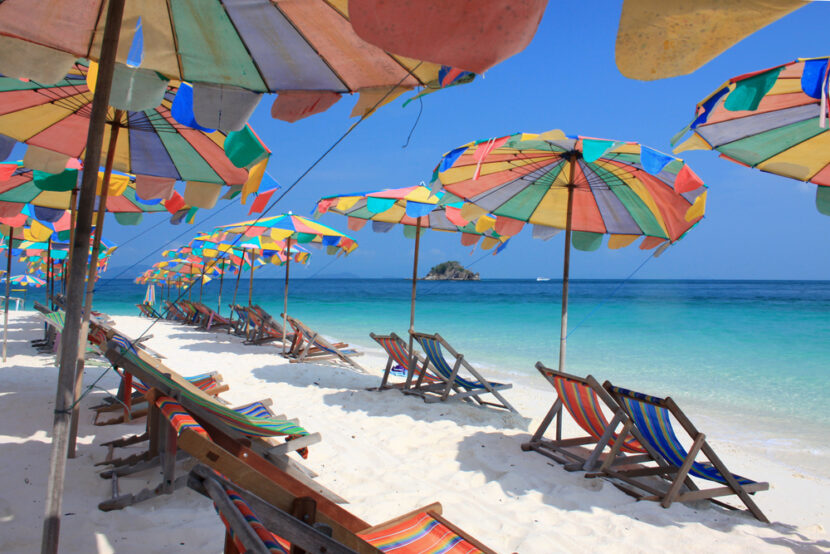BANGKOK — The bomb blast that ripped through a Bangkok shrine, killing 20 and injuring dozens, is also certain to take its toll on tourism, the one bright spot in Thailand’s sputtering economy.
The Southeast Asian country’s tourism industry has expanded strongly over recent years, driven by rising numbers of Chinese tourists, which has helped offset the drag on growth from a decade of political instability.
In the bombing’s aftermath, some foreign travel agencies cancelled group tours and the baht sank to a six-year low. The country’s stock benchmark fell at one point to its lowest since the start of the year, led by tourism-related shares.
The explosion at the shrine, which is popular with Chinese visitors, is likely to dampen their enthusiasm for Bangkok as a tourist destination. The industry has emerged stronger after every crisis the country has faced in the last decade, but the latest incident appears to mark a change by targeting tourists. That raises questions about whether the impact on tourism will be short term or a crippling blow that drives visitors away for longer.
Prime Minister Prayuth Chan-ocha called the bombing “the worst incident” to ever hit the country, saying, “this time they aimed for innocent lives. They want to destroy our economy, our tourism.”
At least 20 people were killed and 125 people injured in the explosion on Monday night, authorities said. They included 2 dead and 28 wounded from China, and two dead and two wounded came from Hong Kong. At least five of the dead were Thai, and others killed or injured came from Malaysia, Singapore, Japan, Indonesia and the Philippines.
“In previous events in Thailand, at least in recent years, tourists have never been really the target. What’s different this time is that it was a prime tourist area that was affected,” said Mario Hardy, Bangkok-based chief executive of the Pacific Asia Travel Association.
Tourism, which accounts for 9 per cent of the Thai economy and employs several million people, “will be severely impacted,” Citibank analyst Jun Trinidad said in a research report.
More than 4.6 million Chinese visitors visited Thailand last year, and tourism officials expect their numbers to rise to 5.6 million in 2015. They account for about a fifth of all foreign visitors and are the biggest driver of growth in tourism.
“We can certainly expect a dip in the Chinese arrivals in the coming weeks,” Hardy said. Tourism arrivals had been forecast to rise to 28 million this year from 24 million in 2014 but Hardy said those projections would now likely not be met. He said that if the bombing turns out to be a one-off incident, tourism levels will probably return to normal in three to six months.
Morgan Stanley analysts said in a research note that tourist travel to Thailand tends to be sensitive to political upheaval. Chinese visitors have been “particularly sensitive to such instability,” with their numbers falling more than average after previous episodes of conflict.
The blast came hours after the government’s planning board issued a quarterly report on the economy that said growth slipped to 2.8 per cent in the April-June period from 3 per cent in the first quarter. “Major constraints” on expansion for the rest of the year include weak global growth amid China’s slowdown and the depreciation of the yuan, which Beijing moved to devalue last week, sending many other Asian currencies lower.
The bomb went off Monday evening at the Erawan shrine at a busy central Bangkok intersection in an affluent neighbourhood with upscale shopping malls and hotels such as the Grand Hyatt nearby.
Attendants at the Hindu shrine speak fluent Mandarin and Cantonese, attesting to its popularity with ethnic Chinese, which may stem partly from tales recounted by Hong Kong and Taiwanese movie stars and pop singers to fans of how their wishes were granted after paying a visit.
The explosion was one of the most popular topics Tuesday on China’s Twitter-like Weibo microblog service.
Wu Jun, a car dealership employee in Nanyang, Henan, said she and a friend were planning a trip later this month but she was now thinking twice.
“After the explosion, my family has been discouraging me from going there. I also have worries about the safety in Bangkok.” said Wu, 22. “What if there will be more terrorist attacks? But I am sitting on the fence now, torn with the decision if I should cancel trip or not.”
Wu said she doesn’t want to cancel yet because the Chinese government has not issued a travel alert, which means she won’t get her money back.
The Chinese Embassy in Thailand reminded citizens to “strengthen awareness, pay attention to travel safety and arrange your travel plans accordingly.” The United States, Japan, the Philippines and Australia issued similar advice. Hong Kong took stronger action, issuing a red travel warning for Bangkok, its second highest level, prompting travel agencies in the Asian finance hub to cancel all package tours to Thailand until the end of the month.
Visitors already in Thailand were unnerved by the violence.
“Something very dangerous happened to people and nobody knows who it was, so yeah, it’s scary,” said Mirjam Rodehacke of Switzerland.
Xue Jianjun, who was travelling with his family from Shaoxing in China, said they would try to avoid places with big crowds.
“After incidents like this it’s usually the safest period. I’m still pretty optimistic,” he said.
Hardy said the long term impact of the explosion will depend on how the authorities manage the situation though he was optimistic of a recovery.
“One thing that Thailand is good at is bouncing back,” Hardy said. “The tourism resilience here is very good.”
